Yesterday British paratroops were honoured by a German Bundeswehr band and cheered by French veterans and civilians. These men were dropped ahead of the landing beaches a few hours before the main assault to capture bridges and neutralise concrete gun emplacements.
Of 750 men from 9 Para dropped to spike the gun batteries at Merville, just 150 actually reached the target, many of them wounded. They still managed to destroy the guns before they could decimate British forces landing on Sword Beach, however.
To honour them, men of the current Parachute Regiment did a jump, some from a Dakota of the era.
At midnight the men of the Ox and Bucks light infantry who landed by glider to capture the crucial Pegasus Bridge over the Caen Canal were commemorated.
This was followed by a huge firework display all along the 60 mile front of invasion beaches were so many British, Americans and Canadians lost their lives.
Over 17,000 Britons were killed during the invasion.
All week veterans of each nation have been honouring each other; taking flags and banners to war cemeteries to remember fallen comrades in moments of quiet reflection, interspersed with applause and tears from crowds of onlookers.
Some amazing stories have come to light; here is the tale of Charlie Truman, 91, whose life was saved by a framed photograph of his wife Joyce.
Grandfather Charlie Truman, now 91, survived a machine gun attack on the beaches of Normandy thanks purely to the silver-framed photograph.
He was one of 150,000 Allied troops who landed on the shores of Northern France on June 6 1944.
As a 26-year-old infantryman with the Suffolk Regiment, he was one of the first soldiers to brave shells and mines of German-occupied territory.
A mile inland from Sword beach, Charlie was mown down in a burst of machine gun fire as his company stormed a German stronghold with fixed bayonets.
But the bullet flying towards his chest was deflected by the silver frame holding a picture of his young wife Joyce - that Charlie had stashed next to his heart just hours before.Speaking from his home in Crowland, Lincs., Charlie said luck and love had combined to save his life that day.
He said: 'I was darned if I wasn't going to have that picture of Joyce with me in the battle.
'The bullet hit a corner of the silver frame and deflected through the arm of my tunic. The doctors told me later that it definitely saved my life.
'It was only much later when I'd recovered that I saw the damage to the picture and realised I'd be dead if I hadn't been carrying it.'
Charlie and Joyce met and courted at local dances in Crowland before marrying on Christmas Day in 1940.
During the war Charlie carried a photo of Joyce with him in an envelope, but was given a silver frame to keep it in by a family he billeted with in Weymouth just before D-Day.
As the troops made their way across the Channel they were told to leave their packs in a heap on the boat.
But Charlie could not bear to risk losing his beloved photo, so on a last minute impulse tucked it in his tunic for safe keeping.
He said: 'There was no guarantee I would get my pack back. I don't remember being scared but I wanted Joyce with me.
'I didn't know that it was going to make the difference between life and death.'
The nine-inch by four-inch solid silver frame still bears the mark of where a tracer bullet aimed directly at Charlie's heart deflected off the metal and hit his arm instead.
Another bullet caught him in the lung but he was picked up by army medics and ferried back to the Royal Hospital Haslar in Portsmouth.
There he hovered between life and death and doctors sent five-months pregnant Joyce a telegram to say her husband was seriously ill and could die.
Charlie was even taken off resuscitation and read the last rites, before the thought of his unborn child pulled him through.
In hospital, he showed Joyce his photo and it was only then that the couple realised the bullet-scared frame had saved his life.
They went on to spend 61 years of married life and have two daughters together before Joyce's death in 2001.
The frame now sits in pride of place in the regiment's official museum in Bury St Edmunds in honour of her memory.
Colonel Tony Slater of the Royal Anglian Regiment, which was created in 1964 after the Suffolk and Norfolk regiments merged, said Charlie's story was incredible.
He said: 'It is a fantastic bit of history and another important part of the story of the Suffolk regiment.
'When they landed on D-Day their objective was to take a hill three miles inland, codenamed Hillman after the car, going uphill in the open air towards heavily fortified Germans.
'What started with Charlie Truman being wounded and the luck of the photo frame saving him went through to extraordinary acts of bravery by many of his comrades that day.
'The regiment was in the thick of heavy fighting in Normandy and Charlie was one of the lucky ones.'
Colonel Slater said of the 650-strong battalion that landed on D-Day around 120 were killed and three of four times that many were injured.
He added: 'It is incredible talking to these men who survived how much was down to pure luck.
'It was a case of the man standing 10 yards away got hit by a bullet and they did not. There was no rhyme or reason to it.'
Five D-Day veterans and 91 serving members of the Royal Anglian will attend a ceremony on Hillman hill in Normandy tomorrow to commemorate those who died.
Frail Charlie, who suffers poor eyesight, will visit Crowland war memorial and mark the day in the company of fellow veterans.
For me, this sums up everything. A hundred thousand individual stories locked together to make history. It is surprising just how much is down to luck and chance.
God bless, Charlie, and God bless each and every one of those men who fought for freedom that day - especially those who paid the ultimate price and didn't come back to tell their tale.
.jpg)



























































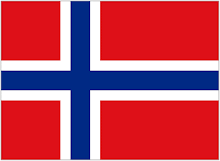
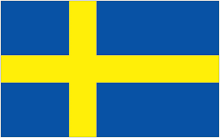






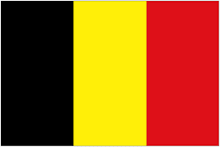

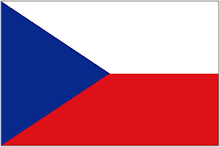











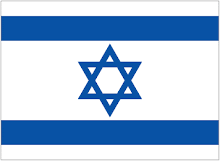




2 comments:
With people like this less than 70 years ago, it is hard to understand why the UK is allowing itself to be overrun today. These people did not just rollover and accept servitude. They would have been better off under German masters than under muzlim masters, but they resisted. They defended their country. Today's people simply can't be bothered to even come out to vote, it seems, and so the invader triumphs with ease. How very strange!
These were great people, and their stories always touch me. I had two uncles who were in the US Army Air Force as it was styled in those days, and they flew out of England. They had warm things to say about England and I have always been intrigued with the kind of people who could bear up and remain civilized under such a strain. That takes real national character, a sense of purpose, a sense of pride, and a sense of identity. In the early '40s, it was good to be English, it was good to be white, it was good to be the home of the British empire. This gave these people the ability and the strength to defend their nation in the face of imminent invasion from a brutal enemy. We can only be sad today to see it all gone.
On this 65th anniversary of D-Day I find it extremely ironic that the Allies' triumph over Aryan racial superiority has been supremely manifested in the fact that the American president commemorating D-Day is a Negro closet-Muslim. What a bitter pill it must be for the survivors of that terrible battle to have to watch Obongo's commemoration.
Post a Comment